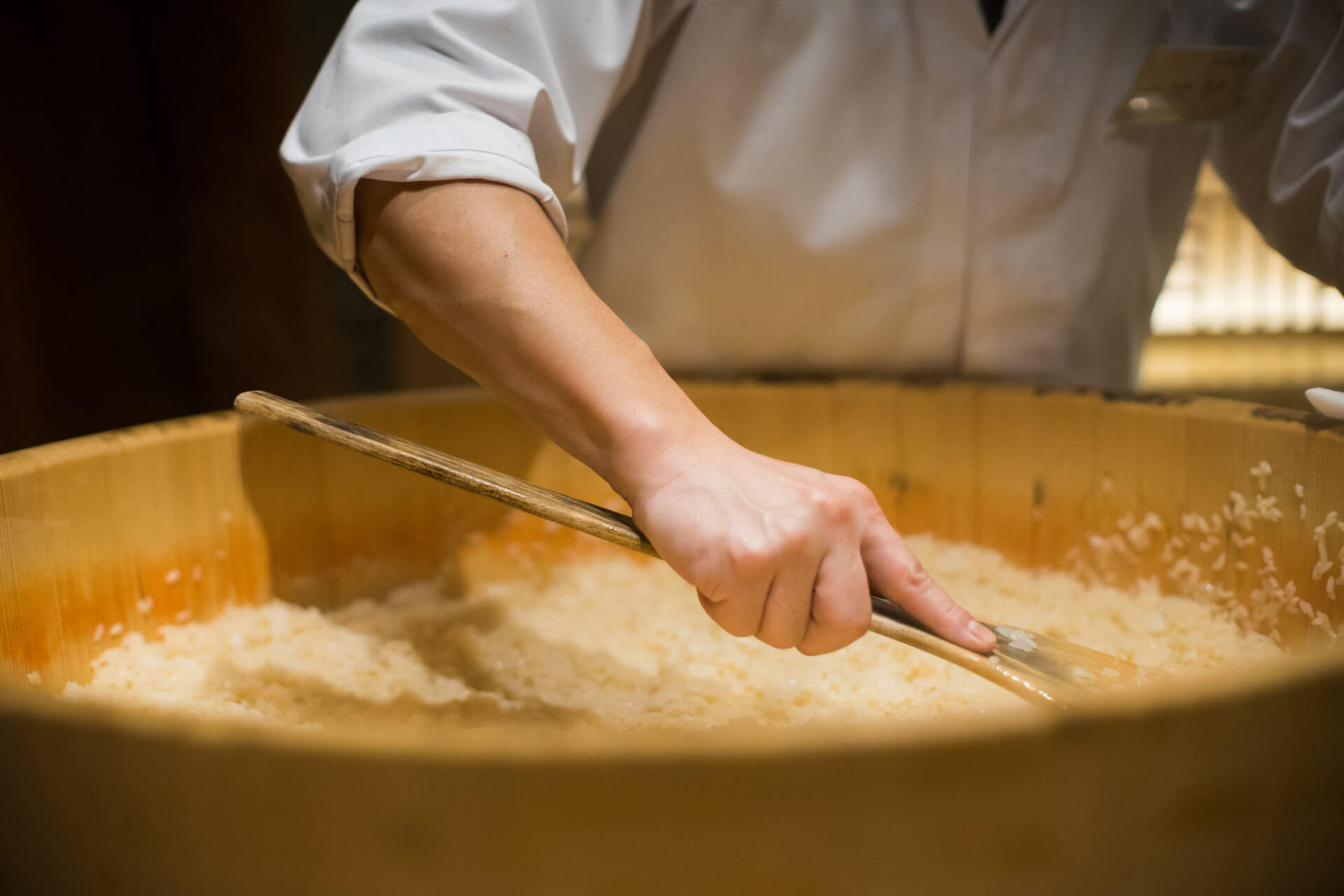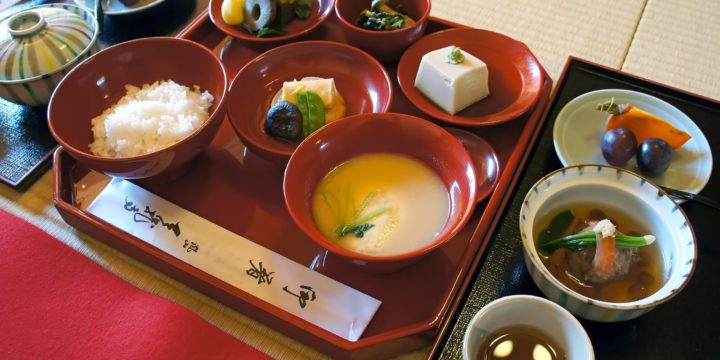Successful Screening to Hire a Skilled Japanese Sushi Chef


If you have worked in Human Resources, you may know what it feels like to be disappointed at the performance of the sushi chef you hired. In this article, we will show you how to screen a sushi chef so that you may not regret hiring them.
1. Training of Sushi Chefs in Japan


What kind of training does a chef go through in Japan to improve their technique?
Is It Outdated to Spend “3 Years in Cooking Rice, 8 Years in Making Sushi”?
Until about two decades ago, it had been said that it would take 10 years to become a sushi chef. The saying goes, “You cook rice for 3 years and then make sushi for 8 years.” It was taken for granted that the only way to become a sushi chef was to learn at a sushi restaurant as an apprentice of experienced chefs, while doing chores, such as cleaning, delivery, and waiting on the tables from morning to midnight. Recently, however, training for a sushi chef has been going through a major change.
Why Sushi Techniques Became Widely Available
First of all, young people today cannot stand a training period during which they are underpaid for long hours of work and are not even allowed to touch fish while doing all the chores for years. As so many people kept quitting, the sushi restaurant industry in general became short-handed.
In addition, techniques for making sushi had been known to only experienced chefs, but the knowledge became available to the public because of the wide access to the internet since the 2000s in Japan. In particular, the last few years provided us with easy access to YouTube videos that teach how to make sushi. In accordance with these changes, a training system at sushi restaurants has gradually started to change as well. Instead of the unreasonable amount of cleaning and delivery, new employees are usually given a knife at the restaurant right after they are hired so that they can build up their experience.
Example of the Training at a Typical Sushi Restaurant
Each restaurant has a different system and period of training, but below is an example of the training at a typical Edomae-style sushi restaurant in Japan. On average, trainees tend to spend less time before they start to make sushi at the counter in front of the customers than in the past.
| 1st – 2nd year | ・Cleaning
・Cook meals for the staff ・Prepare small fish ・Cook vinegared rice ・Cook egg omelet ・Serve on the plate |
| 3rd – 4th year | ・Prepare seafood
・Cook simmered, grilled, steamed, and deep-fried dishes ・Prepare small dishes (“tsumami”) ・Make sushi for catering |
| 5th year – | ・Make sushi at the restaurant counter |
What Does Sushi School Teach?
At sushi school in Japan, the objective is to learn how to make nigiri-zushi and sushi rolls. Students begin with cleaning and filleting small to medium-sized fish, such as horse mackerel and young yellowtail, which are easy to handle for beginners. With the training of 2 months to 1 year, the students will eventually learn to make sushi with about 30 kinds of seafood, including tuna and salmon.
Can I Learn Sushi Techniques on YouTube?
Although there are young chefs who taught themselves sushi with YouTube, even in 2021, it is still the best way to acquire techniques from experienced chefs at the restaurant in order to become a top-tier chef.
You can learn how to sharpen a knife or fillet salmon at school or on YouTube. Yet only a restaurant can teach you how to deal with orders coming in quick succession or customers’ complaints. When you hire a sushi chef, the most important thing to look for is the applicant’s work experience at a sushi restaurant.
2. How Should I Screen a Sushi Chef?


Now, here are some points to check when you hire a sushi chef.
Resume/CV
Most Japanese people are not used to making themselves stand out on their resume/CV. The resume/CV may look bland because it lists only the applicant’s position and the restaurant’s name. Yet you can find more once you talk with them, so I recommend that you wait until the interview to hear about more details.
Interview
In an interview, you can learn the applicant’s personality, communication skills, and language skills. You may also decide if you want to work with him/her intuitively.
When you ask about work experiences, try to get details about what exactly the applicant was doing. If the person has been working at a famous restaurant, we may assume that he or she must have exquisite skills, but some restaurants that attract a lot of customers can be dividing tasks among the staff. The applicant does not necessarily do everything at the restaurant.
Also, there are chefs who specialize in sushi. Ask about the applicant’s experience in Japanese cuisine other than sushi.
Cooking Test
During the interviewing process, some restaurants ask the applicants to come to the site and clean and fillet fish or make sushi. By introducing such a test, you can see the applicant’s skills that cannot be shown on the resume.
References
In Japan, references are not common and applicants are not required to submit one for the interview. That means, if your applicant has multiple references, it is most likely that this person has earned trust from different people.
Cooking License
There is no official license for a sushi chef in Japan, but a cooking license exists as what guarantees a certain degree of culinary knowledge and skills. You can obtain the license by graduating from Chorishi Senmon Gakko (government-authorized culinary training colleges) or have work experience for 2 years or more. We cannot evaluate one’s skills only with a cooking license, but it works in favor for the applicant in the visa application process in some countries.
Visa Eligibility
Requirements for a work visa vary among countries and regions. You need to check the requirements beforehand, such as how much work experience is needed or if language proficiency is necessary. Then, you need to decide if the applicant can obtain a visa.
3. What If I Have a Problem in Hiring?


“I do not know what my restaurant should feature to attract Japanese sushi chefs.”
“I have an idea of the chefs I am looking for, but I do not know how to find them.”
“We tried to recruit on our own before without success, so we want to find a truly skillful sushi chef this time.”
“Since no staff member speak Japanese, we want to entrust the whole task of hiring Japanese chefs to someone else.”
If you have a problem in recruiting Japanese sushi chefs, feel free to contact us Washoku Agent!
- Where Can We Find an Omakase Chef?
- Categories of Japanese Cuisine You Should Know Before Hiring Japanese Chefs
Do you want to know more about Global Japanese Cuising Market?
If Yes, please submit this form and you will receive it by email.
on WhatsApp.





